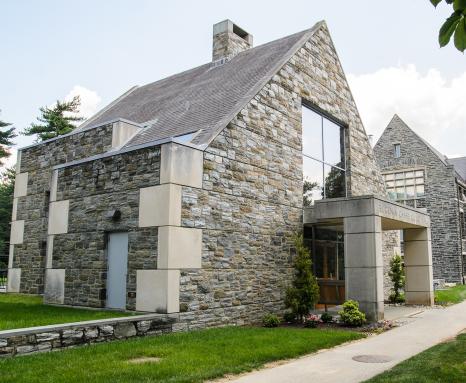On Wednesday evening, former Head of Honor Board Xenya Currie ’24 sent out an email to the Bryn Mawr community notifying them of a “troubling” trend she’d witnessed during the final semester of her tenure on the Honor Board.

In the email, Currie alleges that, on multiple instances, Bryn Mawr College Deans failed to abide by proper Honor Code procedure when leveling Dean’s Panel hearings against student protestors involved in the encampment on Merion Green. For one, she claims that the decision to hold a Dean’s Panel was made without a consultation from herself or current Head of the Honor Board Katelyn Stealey ’25. The Bryn Mawr College Undergraduate Handbook makes it clear in three separate section that the decisions to move from an Honor Board Hearing to a Dean’s Panel must be made with input from the Head of the Honor Board. Currie claims that the Dean’s Panels issued to students within the past month were announced both prior to and entirely without consultation with the Head of the Honor Board. Katelyn Stealey confirmed to the Bi-Co News that she had not been consulted in the decision to initiate a Dean’s Panel.
Further, Currie claims that she was informed in meetings with Dean Co-Chair Tomiko Jenkins that, moving forward, the decision to initiate a Dean’s Panel against a student lies completely with the Dean Co-Chair. This change to procedure was not made with SGA input, nor was it voted on during Spring Plenary, during which changes to the Honor Code and SGA Constitution are supposed to be introduced.
Currie goes on to allege that the recent Dean’s Panels procedures were initiated without a “positive confrontation.” As defined by the Social Honor Code, a positive confrontation is an in-person conversation between two students in an effort to reach mutual understanding after an offense has taken place. If the positive confrontation does not lead to a resolution of the issue, then and only then can an Honor Board Hearing or Dean’s Panel take place. Currie maintains that historical records indicate that previous attempts at a Dean’s Panel that did not begin with a positive confrontation have been rejected. She says, “In all of my conversations with administrators surrounding these matters, this perspective has been affirmed as a key tenet of the nature of Dean’s Panels.”
In her recent conversations with administrators, Currie alleges she was told that a positive confrontation would no longer be necessary for initiating a Dean’s Panel. She indicates that she understood that a Dean’s Panel could be initiated without any kind of confrontation at all, and even on behalf of anonymous students.
In a another part of the email, Currie states that this change may not be permanent, as administration has since stated that positive confrontation may still be necessary to initiate a Dean’s Panel, except in cases in “which where the College and/or the College’s operations are being harmed.”
Finally, Currie states that neither she nor Stealey were consulted on the decision to exclude Student Representatives from the Dean’s Panel. According to the Student Handbook, if the Dean Co-Chair believes that the inclusion of student representatives is inappropriate for a specific case, the decision to waive student representation must come from consensus between the Dean and the Head of the Honor Board.
Again, Currie maintains that not only were neither she nor Stealey consulted in the decision to waive student representatives for the Dean’s Panels against student organizers, she was also informed that, moving forward, the decision of whether or not student representation is appropriate for a given case is ultimately up the Dean Co-Chair. Stealey confirmed that she had not been consulted in the composition of the Dean Panel separately to the Bi-Co News. This change was also not made with SGA input, nor was it voted on during Spring Plenary.
In her concluding statement, Currie writes:
I struggle to envision how the Honor Code can continue to transform Bryn Mawr students’ lives when—at the first college in the country to have a Self-Government Association, one of the key tenets of which is the self-governed, student-run Honor Board—the students who have been elected by the student body to administer the Honor Board are excluded, without consultation, from the procedures that allow us as students to hold ourselves accountable to the rules of behavior and community guidelines that we, through our self-governing processes, have chosen for ourselves.
Bryn Mawr College administration has not responded to request for comment.
Read the full email below:





